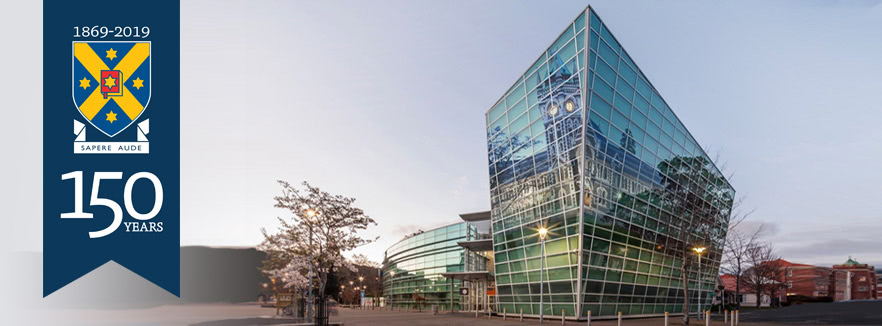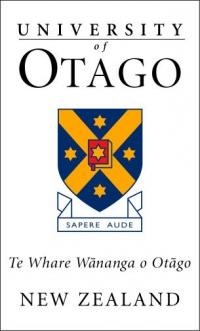Postgraduate Diploma in Public Health (DPH)
The Postgraduate Diploma in Public Health (DPH) is a broad-based qualification which is highly sought after by a range of employers. It is relevant and practical, with graduates being able to identify and understand public health issues, and depending on which optional papers are taken, gain the skills to analyse and use health data, design appropriate health promotion strategies, plan and evaluate public health interventions, work collaboratively with professionals and the community, appreciate resource allocation and cost issues in health and uphold ethical standards.
The DPH consists of four core papers, with a further four papers chosen from the schedule enabling the qualification to cover a broad range of public health topics. We expect that the majority of students will complete an unendorsed DPH, however there are three endorsed options for those with specific interest areas in epidemiology, health promotion, or social research methods.
For those who are planning to go on to a Master of Public Health (MPH), a research paper relevant to the intended methodological approach needs to be included as one of the optional four papers. This is in addition to the core epidemiology paper, PUBH 711 Principles of Epidemiology.
The DPH can be used as a stand-alone qualification, but equally you can use the papers from the Diploma to progress to the Master of Public Health (MPH). Note candidates for the MPH must have attained a good B average (73%) overall in their DPH.
Campus Information
Christchurch
Available through the Christchurch campus are: Health Sciences, Otago Medical School, Clinical training, School of Physiotherapy (Clinical education), Research, Distance education, Postgraduate education
Dunedin
The University of Otago main campus is located in Dunedin. The Dunedin campus includes: Central administration Four academic divisions: Business, Health Sciences, Humanities, Sciences
Wellington
Available through the Wellington campuses are : Health Sciences, Otago Medical School (Clinical training), School of Physiotherapy (Clinical education), Research, Distance education, Postgraduate education, Course information and advice
Intakes
- Feb
- April
- July
- Aug
Application Processing Time in Days: 30
Minimum English Language Requirements
| English Level Description | IELTS (1.0 -9.0) | TOEFL IBT (0-120) | TOEFL CBT (0-300) | PTE (10-90) | |
|---|---|---|---|---|---|
| Expert | 9 | 120 | 297-300 | 86-90 | |
| Very Good | 8.5 | 115-119 | 280-293 | 83-86 | |
| Very Good | 8 | 110-114 | 270-280 | 79-83 | |
| Good | 7.5 | 102-109 | 253-267 | 73-79 | |
| Good | 7 | 94-101 | 240-253 | 65-73 | |
| Competent | 6.5 | 79-93 | 213-233 | 58-65 | |
| Competent | 6 | 60-78 | 170-210 | 50-58 | |
| Modest | 5.5 | 46-59 | 133-210 | 43-50 | |
| Modest | 5 | 35-45 | 107-133 | 36-43 | |
| Limited | 4 | 32-34 | 97-103 | 30-36 | |
| Extremely Limited | < 4 | < 31 | < 93 | < 30 |
Job Opportunity Potential
We encourage all students – including International students – to make use of the career resources available on our website. From exploring your career options to specific job search strategies, you’ll find the information you need to establish your future career. You’ll also find information on this page specifically targeted at International students.
Get help with:
Career planning: Explore your career and study options
Job Applications: CV and cover letters, interview skills and applying for work
Gaining Experience: Get the ‘right’ skills, enhance your Otago experience… and volunteer.
Finding Employment: Job search strategies, career events and looking for work
Speak to a career adviser one-on-one if you need further assistance.
Enhance your employability
The graduate job market is competitive – good grades alone may not be enough to get your ideal job. You’ll also be expected to possess excellent English language skills, and be able to demonstrate a range of work-related skills and personal qualities relevant to the job. Develop the required skills through:
Work experience – gain part-time work, voluntary work, summer placements, or internships
Extracurricular activities – get involved in activities outside your course such as student societies and sporting clubs
Academic activities – show your capabilities by, for example, leading a group project or being a student representative for your course
PSW Opportunity
- During study, all students on a student visa can work up to 20 hours per week during semester and full time during vacations.
- After completing Level 7 Bachelor’s Degree or Higher Qualification, a student will get a three years open post-study work visa.
- After completing Level 8 Post Graduate courses of 1 year, students get 1 year PSW.
Admission Requirement / Eligibility Criteria
A postgraduate diploma can be taken at any time after the completion of a bachelor’s
degree. It is usually undertaken in the same area of study as the major subject pursued
for a bachelor’s degree, or in a related discipline, and requires achievement at a
satisfactory academic level.
IELTS
Score of 6.5 in the academic module (with no individual band below 6.0)
IELTS Indicator test
This is an online version of the regular IELTS test, made available due to COVID-19 testing centre restrictions.
Paper-based TOEFL
Score of 587 (TWE 4.5).
TOEFL iBT Special Home Edition
This is an online version of the regular TOEFL iBT test, made available due to COVID-19 testing centre restrictions.
Cambridge Certificate of Proficiency in English (CAE)
Minimum of 176 (with no individual band below 169)
Duolingo English Test (DET)
Score of 110
Pearson Test of English (PTE) Academic
Overall score of 64 with no communicative skills score below 57
- Course Type: Full Time
- Course Level: Post Graduate Diploma or Certificate
- Duration: 01 Year
-
Total Tuition Fee:
42696 NZD
Annual Cost of Living: 20000 NZD
Application Fee: N/A
Similar Programs
- Postgraduate Diploma in Wildlife Management (PGDipWLM) at University of Otago
- Postgraduate Diploma in Science Communication (PGDipSciComm) at University of Otago
- Postgraduate Certificate in Science Communication (PGCertSciComm) at University of Otago
- Postgraduate Diploma in Applied Statistics (PGDipApStat) at University of Otago
- Postgraduate Diploma in Science (PGDipSci) at University of Otago
- Postgraduate Certificate in Applied Science (PGCertAppSc) at University of Otago

